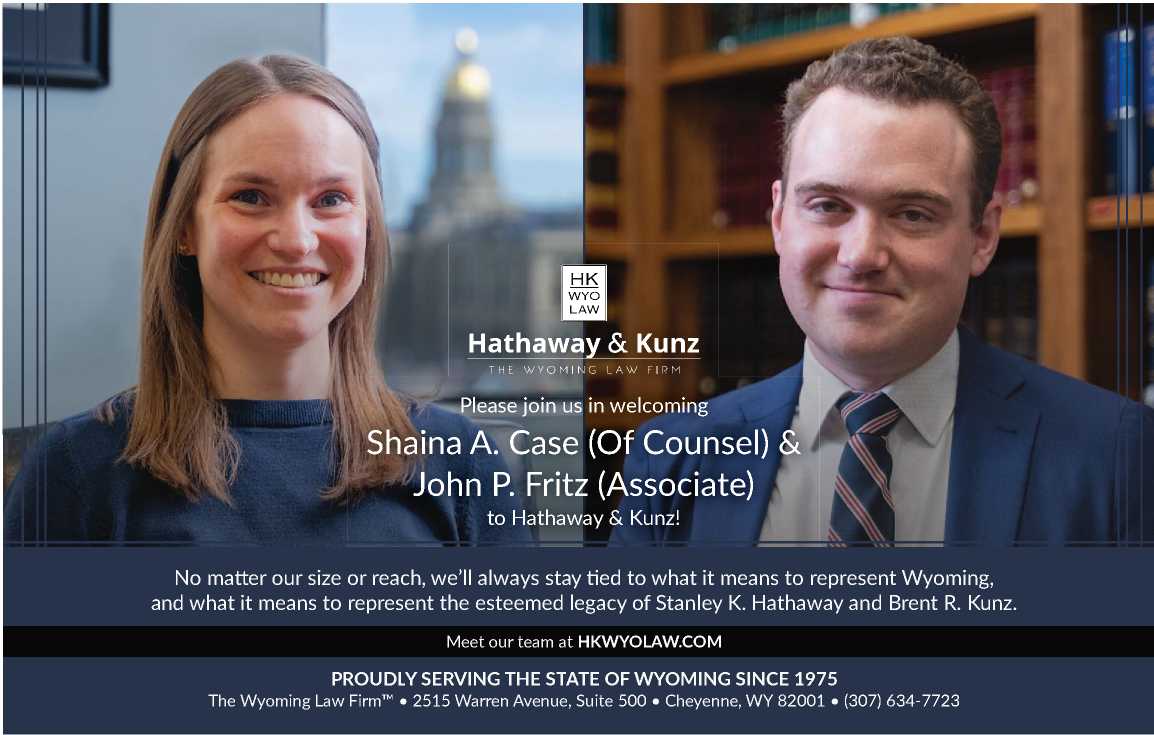Office of Bar Counsel
| Citation | Vol. 46 No. 3 Pg. 08 |
| Publication year | 2023 |
| Pages | 08 |

Office of Bar Counsel
Mark W. Gifford
Mark Gifford is Bar Counsel for the Wyoming State Bar's Office of Bar Counsel
A Primer for Wyoming Prosecutors: Board of Professional Responsibility vs. Manlove
In a long-awaited decision issued by the Wyoming Supreme Court in April, the Court ordered the disbarment of former Laramie County District Attorney Leigh Anne Manlove for, in a nutshell, engaging in misconduct and lack of candor which "places her continued fitness to practice law into serious question and does not allow for any sanction short of disbarment."[1] The Court's 55-page opinion in Board of Professional Responsibility vs. Manlove stands as an unprecedented dissertation on what is expected of Wyoming prosecutors in discharging their professional responsibilities.
The Court's 55-page opinion in Board of Professional Responsibility vs. Manlove stands as an unprecedented dissertation on what is expected of Wyoming prosecutors in discharging their professional responsibilities.
In addition to a thorough analysis of which Rules of Professional Conduct were violated by Ms. Manlove—rules requiring competence, diligence, candor to the tribunal, compliance with a court order, candor in a disciplinary proceeding and engaging in conduct prejudicial to the administration of justice—the opinion delves deeply into the American Bar Association's Standards for Criminal Justice Relating to the Prosecution Function ("Prosecution Standards") and delineates what is required of prosecutors pursuant to those Standards.
First published in 1968, the Standards are "frequently relied upon by judges, prosecutors, defense attorneys, legislatures, and scholars who recognize that they are the product of careful consideration and drafting by experienced and fair-minded experts drawn from all parts of the criminal justice system."[2] Wyoming Rule of Professional Conduct 3.8, "Special responsibilities of the prosecutor," refers to the Standards but does not expressly adopt them.[3]
In a smattering of cases in the last 20 years, the Wyoming Supreme Court has drawn upon the Standards, specifically the Prosecution Standards, for guidance.[4] However, before Manlove, such cases were concerned largely with a prosecutor's conduct in the courtroom, for example, Prosecution Standards prohibiting a prosecutor's knowing use of inadmissible evidence or asking legally objectionable questions, or making impermissible comments; prohibiting improper interrogation of witnesses; prohibiting intentional misstatement of evidence in argument to a jury; and prohibiting the intentional use of facts outside the record.[5]
The Manlove opinion breaks new ground in applying, for the first time, Prosecution Standards regarding a prosecutor's duties of diligence, promptness and punctuality (Prosecution Standard 3-1.9); a prosecutor's heightened duty of candor (Prosecution Standard 3-1.4); and a prosecutor's duty to maintain a manageable workload (Prosecution Standard 3-1.8).
A Prosecutor's Duty of Diligence
The Manlove Court underlined its concern about the deleterious effects of procrastination by a prosecutor:
"[N]o professional shortcoming is more widely resented than procrastination" because the public's interests "often can be adversely affected" by a prosecutor's failure to act promptly in pending matters. W.R.P.C. 1.3, Comment 3; The Client of the Prosecutor, ABA Standards for Criminal Justice § 3-1.3 (4th ed. 2015).[6]

In applying Rule 1.3 to the role of a prosecutor, the Court held:
...To continue reading
Request your trial
